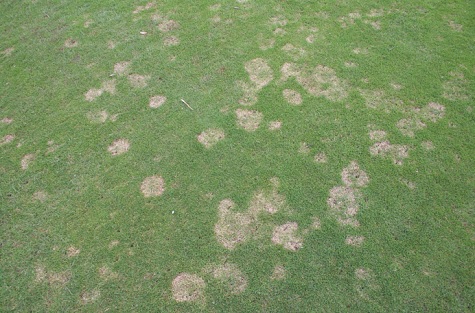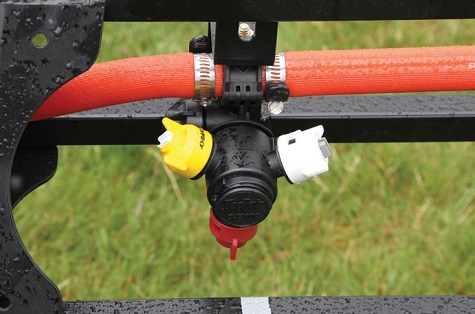
In the first of this series of articles, we sought to get a clearer definition of what sustainability is and what it means to an organisation, especially in the amenity horticulture sector. Sustainability comprises three pillars or components namely economic viability, environmental protection and social equity. The definition of these is important when any organisation seeks to become more sustainable, or indeed seeks to deliver more sustainable products and services to its customers. The remaining articles on this subject will now look more closely at various sub sectors of, and activities in amenity, and those providing services to them which hopefully will help all readers in their own search for sustainability.
Previously we considered Sustainability In Practice, Sustainability At The Sharp End, Sustainability In Supply, Managing Weeds Sustainably, Innovation & Sustainability, Life Cycle Analysis and Sustainability, and Implications for Training & Education.
This month we consider sustainability on a global scale and consider how this might impact on practice here in the UK.
Whilst here in the UK we might strive for more sustainable practice, and meeting national targets such as net zero, how is this reflected on a global scale? We often hear the remark that although we can do all we can, what about the huge pollution and carbon issues elsewhere in the world. Is the rest of the world also driving towards sustainable practice? The answer is that the large majority are indeed doing so; in different ways, yes, and with different drivers but nevertheless are addressing the issue.

Turf disease
This drive is fuelled by policy makers committed to global sustainability targets, but is also now often making financial sense. The steep rises in input prices post COVID have focussed the attention of amenity managers globally. Taking an integrated approach is not just a UK phenomenon. Matt Nespeca from ENVU is based on the East Coast of America and emphasises the increased interest by golf superintendents and landscape managers in steps to improve plant health, and create an environment where the need for actions to control pests, diseases and weeds can be minimised. Matt stresses that this is not just in the USA but is a key topic in many other parts of the world, including their customer bases in Canada, Australasia and South America.
Being more sustainable makes economic sense, he states. Better use of water, increased biodiversity and increased soil health are major components of sustainable practice in amenity horticulture. Also control of invasive species is important. In many parts of the world, the spread of invasive grass species has been exponential, increasing risks of grass fires, along with other issues. There is now multi-national efforts to seek to address the issue.

The United Nations have agreed 17 sustainable development targets; one of which is to seek to ensure the lasting protection of the planet and its natural resources. Following my own review of situations primarily in Europe, here are some key points in how a number of countries are addressing sustainability and sustainable practice. The review is not comprehensive but is mainly derived from conversations with various networks in these areas, but, hopefully, it provides some good pointers.
Denmark would appear to be a standout performer when it comes to waste-water management, curbing greenhouse gas emissions and the fight to stop climate change. Not only has the country committed to reduce harmful emissions by 70% by 2030, but it also has active plans to triple offshore wind capacity by building two energy islands and increase its investments in other clean and renewable energy sources. The Denmark government credits its success to making environmental health a priority for its citizens. In addition to making air quality and advanced sanitation services key government mandates, virtually all of the nation's waste is now recycled, composted, or incinerated.
The Luxembourg government emphasise the continuing health and vitality of its natural ecosystems. A growing move away from the use of fossil fuels and towards active reduction in pollutants has also seen it reduce consumption and minimise its carbon footprint. Switzerland has invested heavily in waste-water treatment, carbon reduction and minimising waste and air pollution, even the country's renowned watchmakers seem to have now got behind the sustainability movement, with brands moving away from leather watch bands in favour of those made from plant-based materials. France target to be carbon neutral by 2050, with policies to reduce food waste and implement forward-thinking eco-farming strategies. Austria pro-actively promotes environmental preservation while also investing heavily in new energy innovations and environmental technologies.
Turning to Scandinavia, Sweden is always quoted highly in its efforts to drive up standards of waste-water treatment and pollution emissions, In Norway roughly 60% of new cars sold in the country are already electric-powered. In Finland there is commitment to reduce dependency on imported fossil fuels by 50% by 2030 and ban the use of coal in power generation. Finally in this brief review of Europe, in Germany, there is a growing push for corporate social responsibility (CSR) which is also seeing businesses increasingly being pushed towards clean and renewable energy and away from greenhouse gas emissions, while also working harder to promote social good.

As in the UK, throughout the EU, all pesticides for use in amenity and agriculture are subject to a rigorous authorisation and review process. However a number of European countries impose further restrictions at a national level. So for example in Portugal, glyphosate use is prohibited in public spaces. However these national policies are often reviewed and changed. Luxembourg recently banned marketing of glyphosate products but this was subsequently over turned following a judicial appeal. Even where restrictions apply, such pesticides can often still be used subject to a licencing scheme and confirmation of application following sustainable practice and applying relevant national action plans for the sustainable use of pesticides and methods of managing weed, pests and diseases.
As said this brief review has focussed on Europe but the same trends and actions are mirrored across the world. As one example, Costa Rica claim that already 99% of their electricity is from renewable sources, such as solar, geothermal, wind and hydroelectric and that they are well on their way to becoming the first carbon-neutral country. In the tropical conditions of Singapore, the high humidity and the almost daily short heavy bursts of rainfall make conditions ideal for weeds, pests, and diseases to thrive. As a consequence a variety of pesticides are used to control these issues, but restriction apply to pesticide use, for example, golf courses that fall within water catchment areas are restricted in the pesticides they can use. Sustainability is very high on the agenda, and golf course superintendents are using alternative methods to mitigate the incidence of weeds, pests, and diseases. One example is air movement. To maintain good air flow, golf courses employ the use of large fans to generate air movement across the playing surface.
What this brief review shows is that undoubtedly there is a general global commitment to sustainability. Of course all initiatives are influenced by economic factors, a pillar of sustainability in any case, and the global financial pressures are impacting but the move towards sustainability and securing the future remain paramount for nearly all nations.

So what does this mean for readers of this series of articles operating across our UK amenity areas? Well clearly it shows that understanding what is meant by sustainable practice is really important and vital going forward. It is not just a local issue but a global one. Good practice abounds on our golf courses, sports areas and amenity spaces but we need to speak up about this and continually improve. A recent social listening study, commissioned by Syngenta and reported on by Turf Pro, emphasises this as it indicated negative reputation across social media. It found that golf is widely perceived to be wasteful with water, and bad for the environment. The industry is also facing increasing questions from detractors about its sustainability credentials, especially in times of drought, with some social media campaigns even calling for golf to be banned. However, as readers will know, and I have seen at first hand, case studies that demonstrate golf courses’ sustainability credentials are easily found. Good practice abounds on our golf courses, sports areas and amenity spaces but we need to speak up about this and continually improve.
I guess though if we were receiving a school report card for our efforts on sustainability in the sports and amenity sector, it would read ‘much progress made, more possible’. We pride ourselves here in the UK for the standards we set in amenity. It is important that these are not just maintained but further improved so we can be shown as amongst the global leaders. Progress will come from small steps.
“We don’t have to engage in grand, heroic actions to participate in change. Small acts, when multiplied by millions of people, can transform the world.” - Howard Zinn.
The next article in this series will seek to provide a perspective on what the soon to be released UK National Action Plan might bring for all involved in weed, pest and disease management and its impact on operational practice, especially in terms of sustainability.